Every business on the planet has an impact. And it could probably be argued that any sustainability report, corporate social responsibility initiative or impressive-sounding emissions reduction target is an exercise in damage limitation, stakeholder obfuscation, or corporate window-dressing.
To continue reading, subscribe to Eco‑Business.
There's something for everyone. We offer a range of subscription plans.
- Access our stories and receive our Insights Weekly newsletter with the free EB Member plan.
- Unlock unlimited access to our content and archive with EB Circle.
- Publish your content with EB Premium.
As Assaad Razzouk, the unabashedly cynical chief executive of Singapore-based renewables firm Sindicatum, and creator of the Angry Clean Energy Guy podcast series, told Eco-Business: “Every company, from the supermarkets burying us in plastic, to the consumer goods companies hiding behind the Roundtable on Sustainable Palm Oil, to the shopping malls freezing us with 16 degrees Celsius air-con, to banks who can’t look beyond their 12-month bonus cycles—it’s profits before people and planet for all of them.”
But even if Razzouk’s view of corporate ethics is correct, and there is, as Eco-Business correspondent Zafirah Zein has written, no such thing as sustainable capitalism or sustainable business, there are individuals who are genuinely trying to turn their companies into better corporate citizens—in a region on track to achieve few if any of the United Nations’ Sustainable Development Goals.
Razzouk sits on the Eco-Business executive board, and was part of the selection process for The Eco-Business A-List, this publication’s inaugural assessment of the most influential corporate sustainability officers in Asia Pacific.
Eco-Business asked the region’s sustainability community to nominate people who should be in The Eco-Business A-List for what they have achieved over the last 12 months. We asked, who are the personalities who have moved the needle within their business, raised the bar for their industries, and tried to make the corporations less harmful for people and planet?
After we reveal our A-Listers, there will be disagreement, debate, maybe even outrage. It was suggested by some on our judging panel—the Eco-Business editorial team and executive board—that to include anyone from the palm oil sector sent the wrong message, and undermined the credibility of this project. Our readers in Malaysia and Indonesia would have something to say about that.
Some who were nominated did not make the cut because it was deemed too soon for a credible case to be made for their employers. Singapore’s banks, for instance, have only just started to decarbonise their lending portfolios. Some have said they will stop funding coal, but still haven’t.
With those considerations in mind, here are the executives that Eco-Business has selected for the first Eco-Business A-List, which were revealed at the Eco-Business 10th Anniversary Gala dinner in Singapore on November 29.
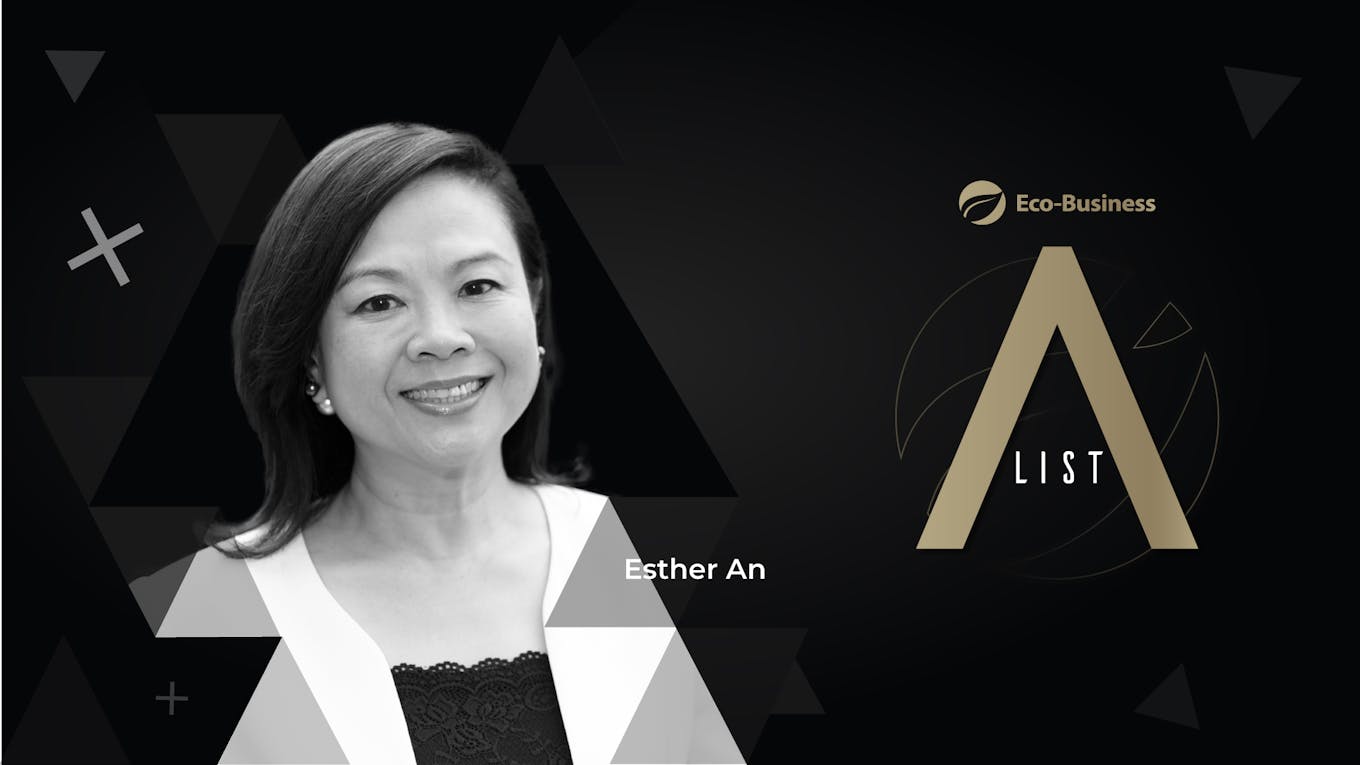
Esther An, chief sustainability officer, City Developments Limited. Image: Eco-Business
Esther An, chief sustainability officer, City Developments Limited
It is sometimes said that Esther An is Singapore’s sustainability scene.
The city-state’s most ubiquitous CSO has spoken at more than 80 events (including 12 overseas—yes, she carbon offsets her flights) in nine months of this year, spreading the green gospel (and the well-rehearsed potted history of CDL’s sustainability journey) to anyone who has the pleasure of crossing her path.
The indefatigable Hong Konger has been a force to be reckoned with for almost 25 years, and did not slow down in 2019. Affectionately known to Singapore’s environment minister as CDL’s chief connecting officer, An was behind the SDG City Challenge, bringing together the Building and Construction Authority, Health Promotion Board and Sport Singapore to promote a green, active lifestyle, while raising awareness of the United Nations’ Sustainable Development Goals (SDGs) to 2,000 participants in July, and the Saving Glaciers SG Alliance in October, convening Singapore businesses to work on ways to conserve the polar regions. She also spearheaded Incubator4SDGs, a partnership between CDL, UNDP and Singapore Centre of Social Enterprise to host start-ups that drive the SDGs.
A green finance advocate, An, who last year was named an SDG Pioneer by the UN Global Compact, conceived the first-ever SDG Innovation Loan in September, a S$250 million loan issued by DBS Bank for innovations that go towards sustainable development. CDL secured S$500 million in green loans this year.
An’s mantra this year has been about urgency. “I’ve had 24 years to get me to where I am in this job. Other companies don’t have the luxury of time. We need to take immediate action,” she told Eco-Business in its story on what it takes to be a great sustainability leader.
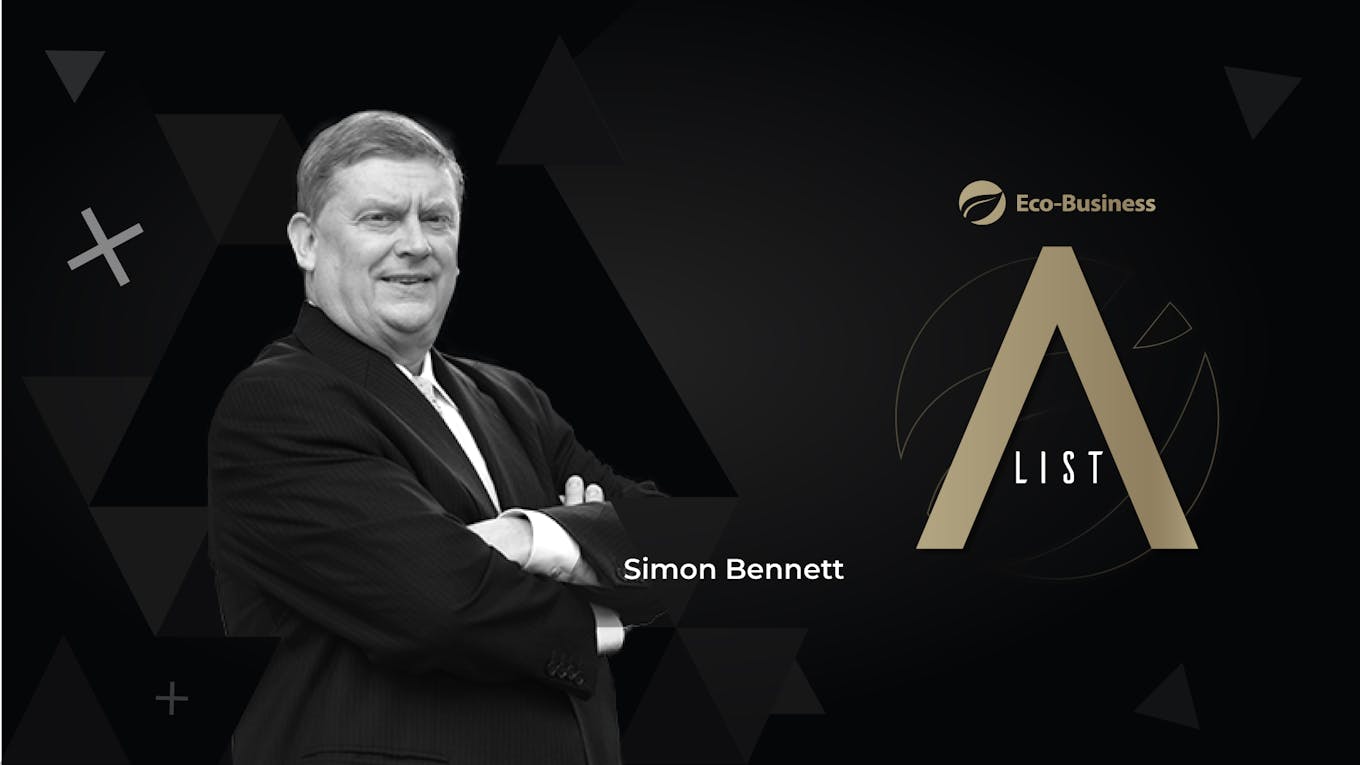
Simon Bennett, general manager, sustainable development, The China Navigation Company & Swire Pacific Offshore Operations. Image: Eco-Business
Simon Bennett, general manager, sustainable development, The China Navigation Company & Swire Pacific Offshore Operations
It all began when he ran away to sea at the age of seventeen more than forty years ago, says Simon Bennett, who was a navigating officer cadet with a degree in environmental science before he joined family-owned conglomerate Swire Group.
Today, he is the company’s head of sustainable development, a post he’s held for the past eleven years and one he says makes sense because he’s “been interested in the environment and doing the right thing from an environmental, social and governance (ESG) point of view for a very long time.”
A vocal proponent of sustainable shipping, and an ever-present at industry events this year, Bennett has been a champion for the decarbonisation of the industry, leading his company’s investment in low-carbon ships. He sits on the board of trustees of the Sustainable Shipping Initiative (SSI). He is also a founding member of the Ship Recycling Transparency Initiative (SRTI), which provides a platform for ship owners to share data on their ship recycling process across a set of disclosure criteria and allows buyers and sellers to make informed decisions on vessel recycling.
Bennett, who performs the same role leading sustainability at Swire’s deep-sea container and bulk shipping branch China Navigation Company, says he’s happily stayed with the company because of the support he has received from both junior and senior management in achieving greater sustainability within their business operations.
“When I say that we need to do this in an environmentally clean way, and it’s going to cost us 10 per cent of our revenue, the answer is often, why are we not doing it?” he tells Eco-Business. “I’ve got the easiest job in the world.”
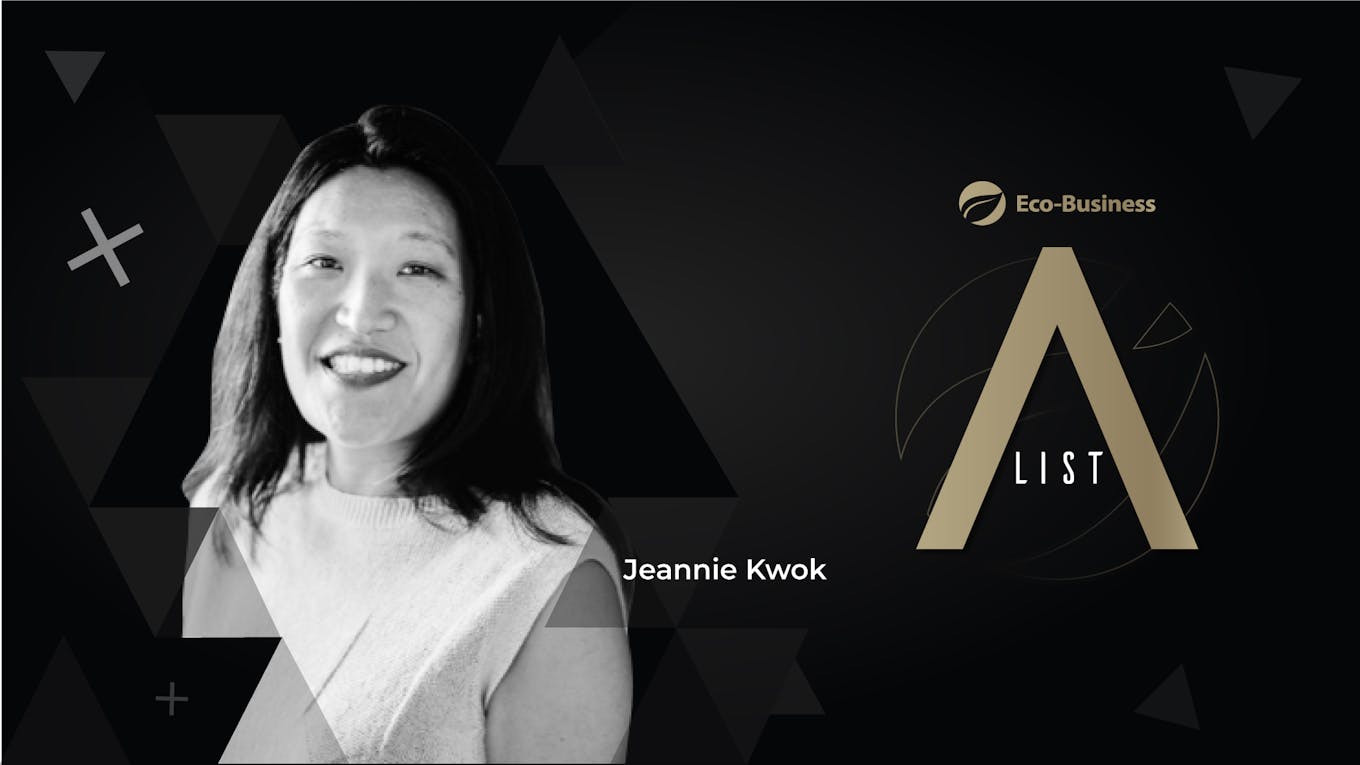
Jeannie Kwok, director of corporate responsibility, Hilton. Image: Eco-Business
Jeannie Kwok, director of corporate responsibility, Asia Pacific, Hilton
Considering how difficult it is to get people to give up their luxuries, Jeannie Kwok’s role as director of corporate responsibility at one of the most prestigious hotel companies is an unenviable job.
However, Kwok is already raising the bar within the hospitality industry, despite having just joined Hilton just a year ago. Earlier this year, she introduced a pilot aimed at replacing plastic mini bottles of soap and shampoo with bulk dispensers, a switch she describes as challenging due to the lack of alternative options and the capacity of suppliers to provide for Hilton’s 320 hotels across Asia Pacific.
Although the overall response to the pilot programme has been positive, Kwok said that there are guests who feel like they deserve to bring home those bottles after paying for a stay at the hotel, a sentiment she admittedly can relate to.
“My parents were immigrant families to the United States, where I grew up. So I understand what it’s like being at a hotel buffet and eating all the lobster. And if you’re staying at a hotel, of course you’re taking home those small bottles of amenities because that’s part of the price you’ve paid,” she shared at a recent panel on sustainable tourism.
However, Kwok is intent on changing the game by continuing the charge against single-use plastic bottles in hotel rooms. She currently leads the Hilton’s corporate responsibility strategy to halve the company’s environmental footprint and double its social impact by 2030 across all of its 845 hotels and pipelines in the region.
No stranger to industry-wide and cross-functional discussions, Kwok also chaired a working group around the reduction of plastics in the hospitality industry earlier this year, and is part of the Hotels Owners for Tomorrow (HOT) Coalition, a ground-up, open-source initiative among hotel professionals to advance sustainability in the industry.
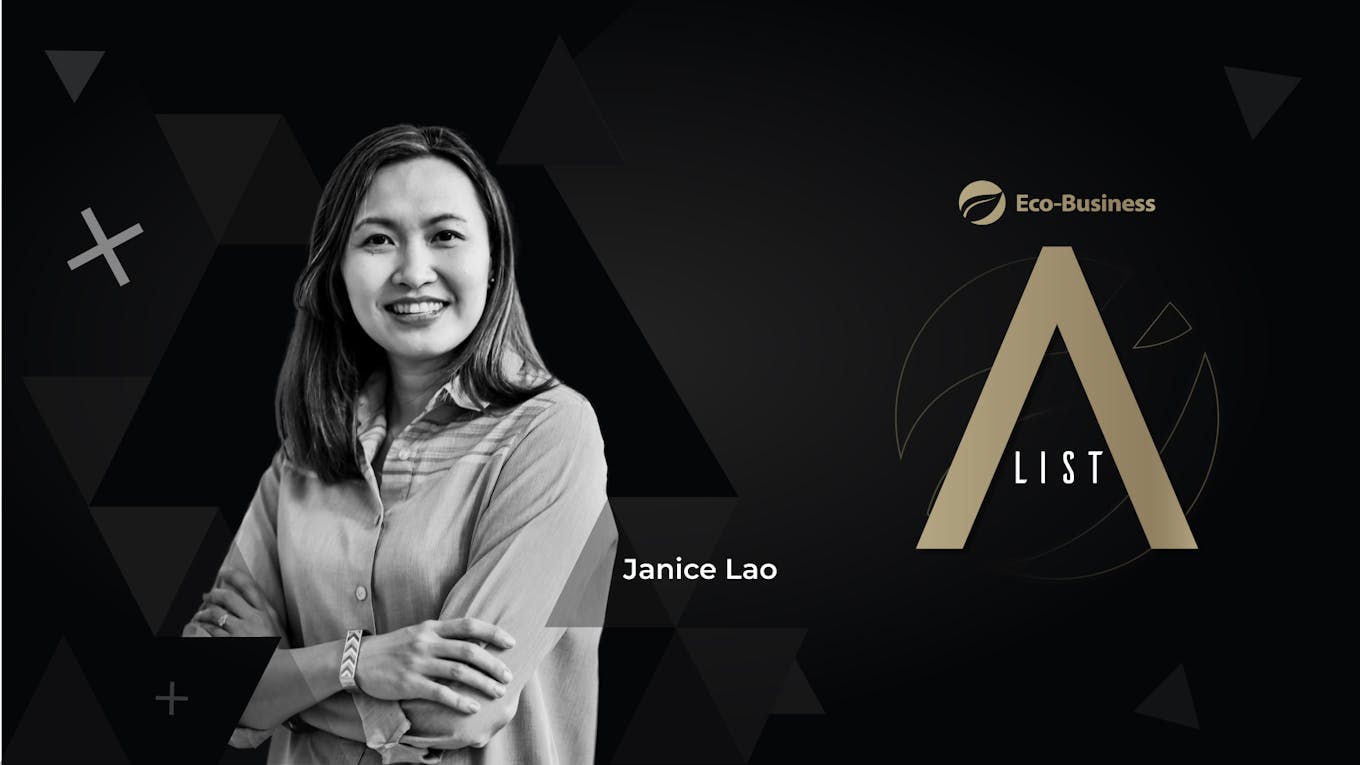
Janice Lao, director of corporate responsibility, Hongkong & Shanghai Hotels Group. Image: Eco-Business
Janice Lao, director of corporate responsibility, Hongkong & Shanghai Hotels Group
The high-profile Janice Lao is to Hong Kong’s sustainability scene what Esther An is to Singapore’s—an omnipresent advocate for green business in the territory.
Three years into her role running sustainability for one of the region’s most prestigious hotel groups, the ambitious Filipina has led her sector’s movement away from single-use plastics this year.
Lao reconfigured her company’s Vision 2020 Sustainable Luxury strategy to integrate sustainability into the Peninsula brand’s luxury offering, has woven sustainability into areas of the business usually immune to environmental and social issues, such as risk management and finance, and developed the group’s efforts in sustainable seafood and carbon trading this year.
In recognition of her work, Lao was named, from a field of 131 finalists, Sustainability Leader of the Year by sustainable business publication edie in February for her action plan to reduce single-use plastics—which was deemed one of the first and most comprehensive plastics reduction frameworks of its kind.
A curious, astute and persistent individual, the former Cathay Pacific and MTR Corporation executive makes “the perfect CSO”, because she knows what needs to be done, and is not afraid to pursue it internally with stakeholders, comments Junice Yeo, Eco-Business’ director for Greater China.
“Testament to her work is Hongkong & Shanghai Hotels’ latest sustainability report. It was simple, yet detailed,” says Yeo. “The report highlighted their key issues, the wins and challenges. Just look at the footnotes on the sustainability data statements at the back of the report and you can see how meticulous she is in providing the facts clearly. This is so rare.”
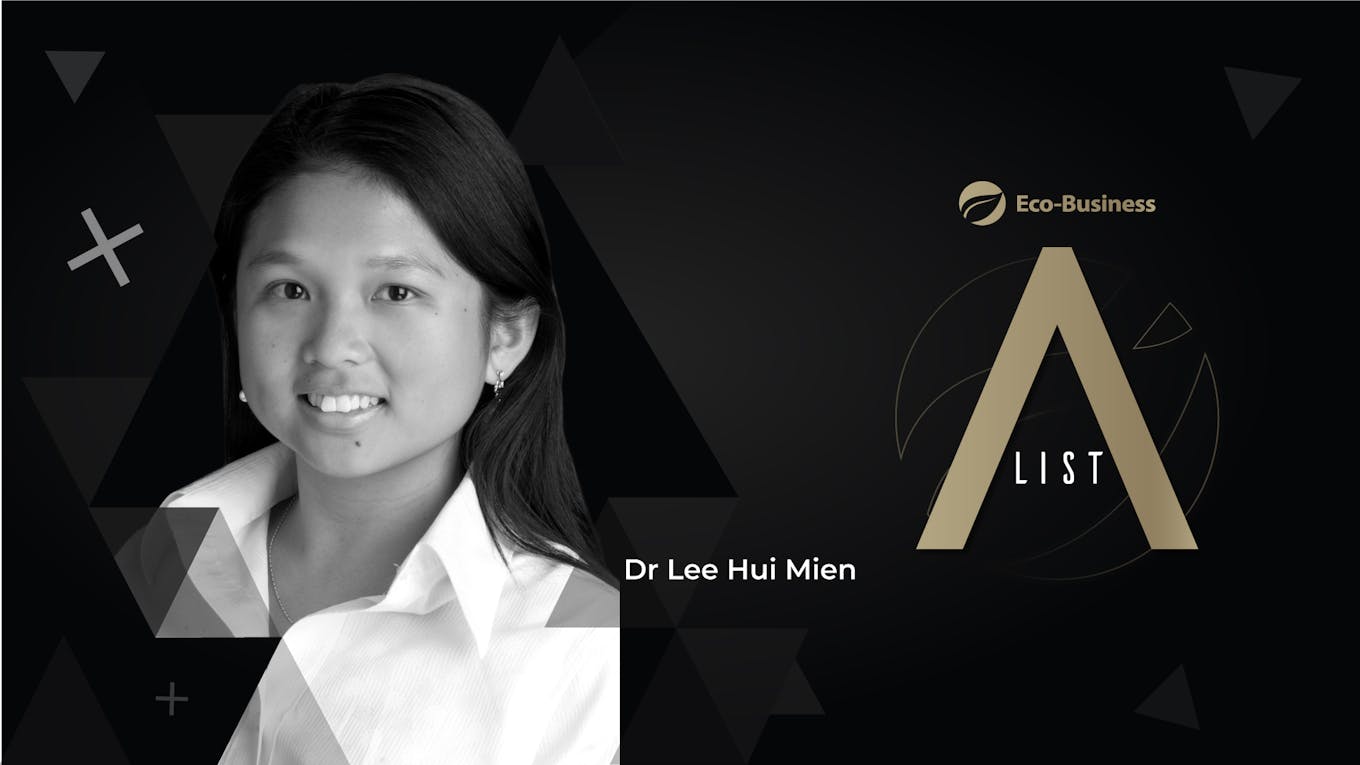
Dr Lee Hui Mien, vice president, team lead, sustainable solutions, Mandai Park Development. Image: Eco-Business
Dr Lee Hui Mien, vice president, team lead, sustainable solutions, Mandai Park Development
Some say she should have been hired much earlier.
Lee joined Mandai Park Development—a huge eco tourism hub still under construction that is to be made up of Singapore Zoo, Bird Park and River Safari—as sustainability lead in 2017, at a controversial time for this ambitious project. Construction of the nature park, which is taking place near a nature reserve, has led to a number of highly public roadkills of endangered species living in the area.
Lee’s sustainability strategy, conceived in 2018, has kicked into gear this year. It involves the analysis of tens of thousands of camera-trap photos to get a better sense of the animals living in the area, and a newly built wildlife bridge for animals to cross over the development. She has also revamped how the company engages with stakeholders on the impact of the project, which includes the construction of a Banyan Tree holiday resort on the fringes of the forest.
Well liked and respected in the Singapore sustainability circle, Lee was handed the reins to the sustainability department of Wildlife Reserves Singapore in July 2019, and has started to merge the two teams. A thoughtful, considered practitioner, Lee says: “Sustainability always needs positive people, because we are the ones who understand the doom and gloom of what’s happening to our planet. But you need to sell a positive story to engage people.”
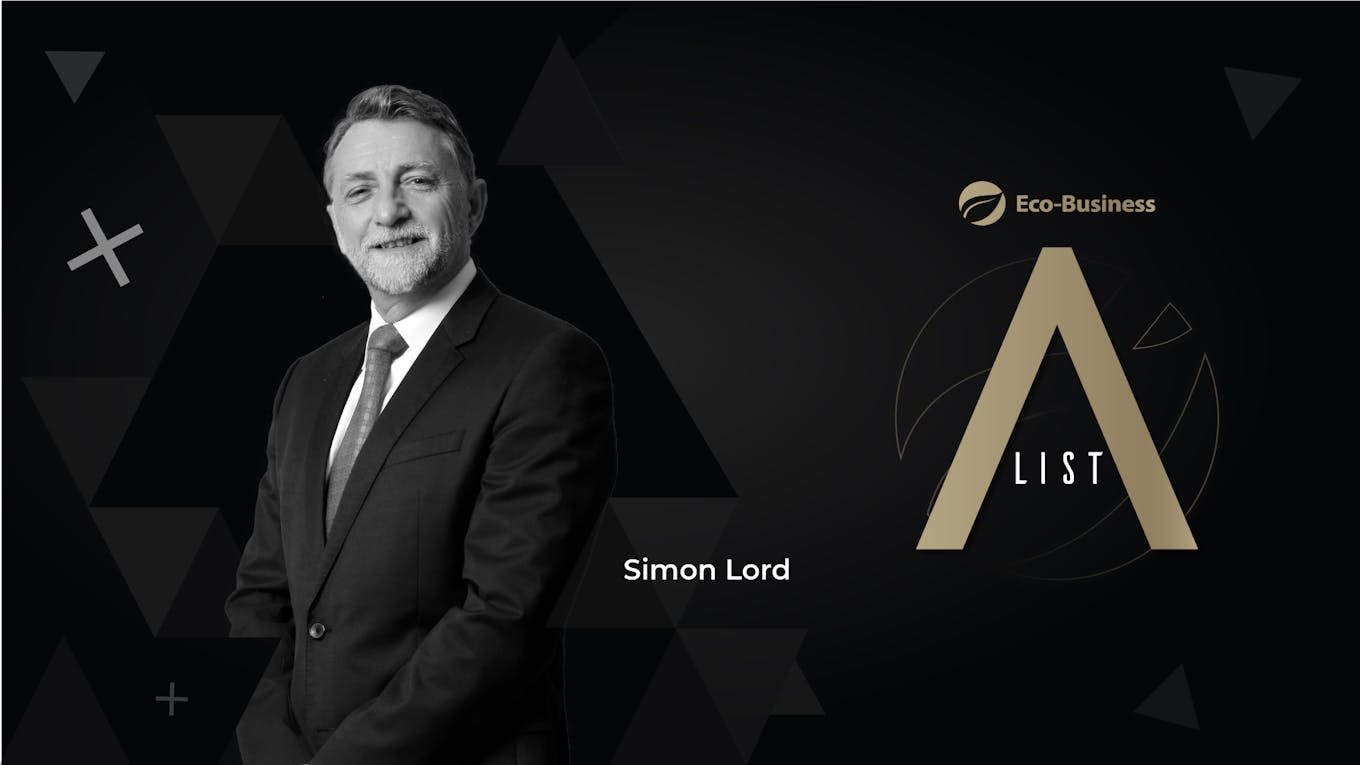
Dr Simon Lord, chief sustainability officer, Sime Darby Plantation. Image; Eco-Business
Dr Simon Lord, chief sustainability officer, Sime Darby Plantation
Consumers in Europe might argue that there is no such thing as sustainable palm oil. But as the CSO of the world’s biggest seller of sustainable palm oil, Simon Lord would disagree.
An eloquent, erudite individual fond of elaborate metaphors, Lord has been a vociferous proponent of sustainable palm oil for two decades, and not shied away from the bitter culture war between Europe and Malaysia over the palm oil trade in 2019, saying that a ban on the commodity by the European Union, which is to come into effect next year, is not going to protect forests. “There is no doubt that palm oil is responsible in some part for deforestation. But walking away from the industry is not going to help us find solutions,” he says.
Key to the credibility of sustainable palm oil is the ability to trace it back to the plantation where it was grown, and Lord was behind a tool that brought a new level of transparency to Sime Darby Plantation’s supply chain in May.
An often overlooked part of the palm oil debate is people, and Lord has steered Sime Darby’s efforts to improve the welfare of its workers; the company ranked first in Southeast Asia for human rights disclosure in May.
A realist, Lord admits there is work to be done. “I am never really happy with our performance, ever, and I would never say we are sustainable. Future generations are the ones who will look back and judge us on that,” he says.
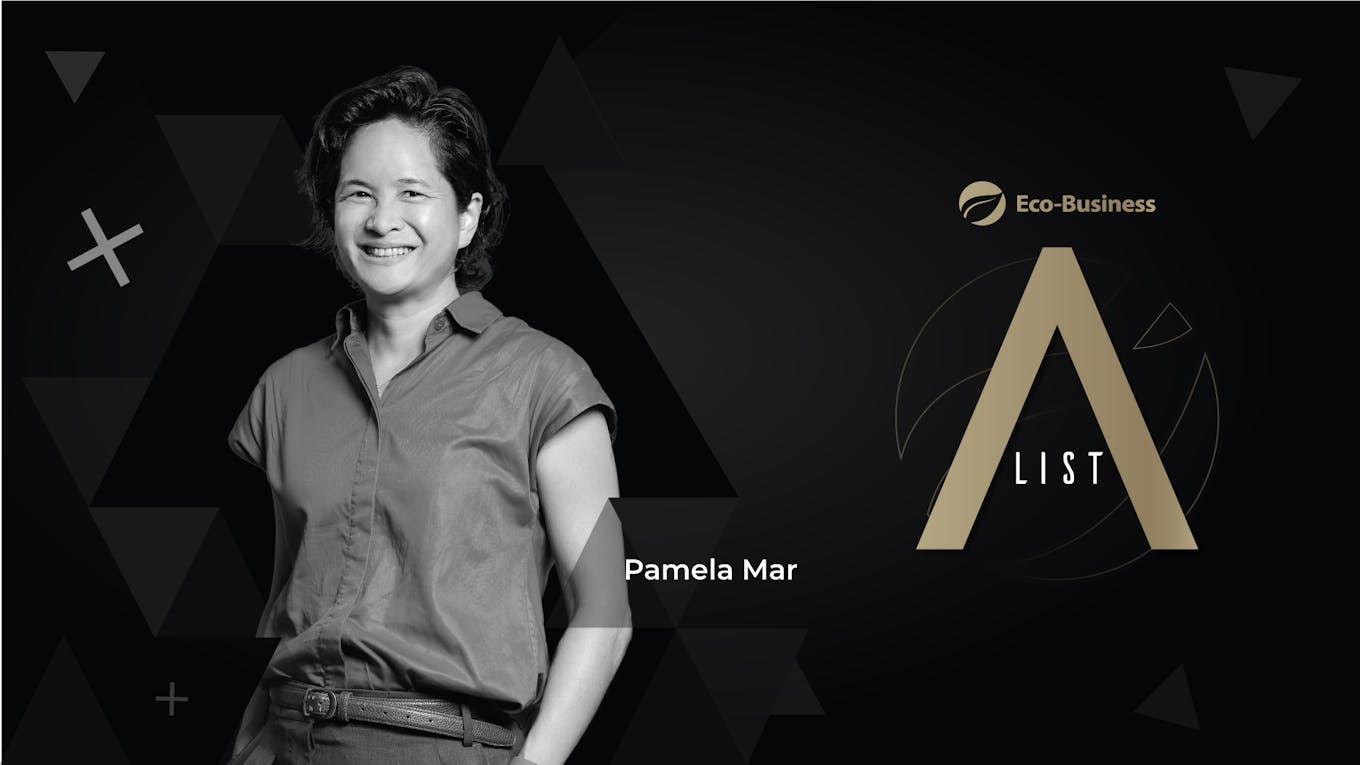
Pamela Mar, executive vice president, supply chain futures, Fung Academy, Fung Group. Image: Eco-Business
Pamela Mar, executive vice president, supply chain futures, Fung Academy, Fung Group
The supply chain of the future, Pamela Mar believes, embraces the fourth industrial revolution to stay relevant in a rapidly changing global market, but does so responsibly.
In her role as executive vice president of supply chain futures and director of sustainability at Fung Group, she drives digitisation and the use of data to help the group’s suppliers improve resource efficiency, transparency and sustainability within its supply chains while safeguarding and enhancing the lives of those touched by them.
In the case of the firm’s development of smart, connected factories, which Mar oversees, this means ensuring that automation doesn’t put millions of garment workers at risk of being left behind.
“Real progress within the industry can only come from upgrading the capabilities of our own people to drive our sustainability innovation,” Mar tells Eco-Business.
For Mar, increasing transparency to provide an unfettered view of her company’s operations is about more than just winning the confidence of customers.
“We need to share our stories widely, not only because this is what the consumer expects, but more importantly so that everyone understands the benefits and is willing to step a little bit into the unknown to try something new,” she says.
She adds: “Humans are creatures of habit. We in sustainability need to convince them that the sustainable future is actually much better than the one we have now.”
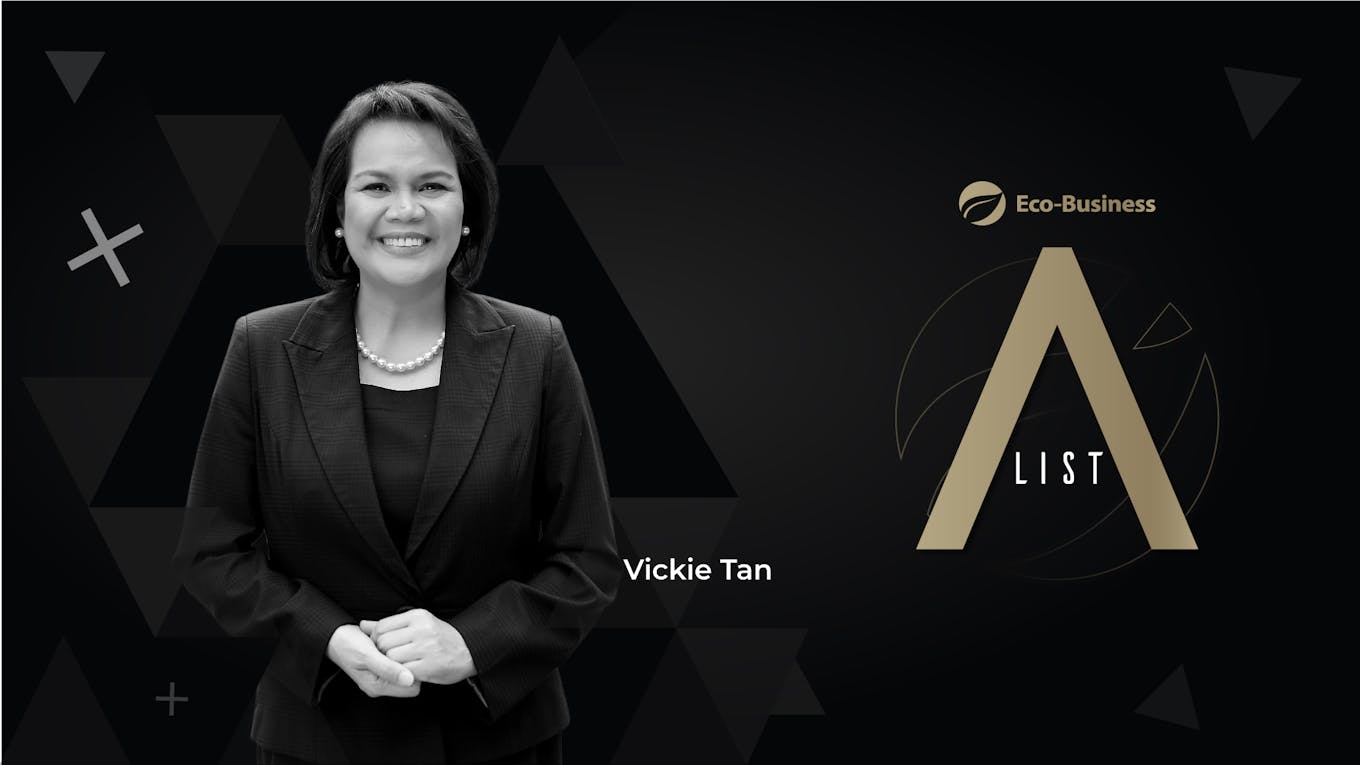
Ma. Victoria Tan, head of group risk management and sustainability, Ayala Corporation. Image: Eco-Business
Ma. Victoria Tan, head of group risk management and sustainability, Ayala Corporation
Steering the Philippines’ biggest and oldest conglomerate in the right direction takes a person with a level head and a lot of energy.
Maria Victoria Tan, better known as Vickie, has for the last six years led sustainability for a complex multi-billion dollar giant whose interests span real estate, energy, telecommunications, financial services, automotive, manufacturing and logistics. In April this year, Tan was instrumental in formulating the Ayala Sustainability Blueprint, a group-wide sustainability plan that would not only impact Ayala and the many companies that it owns, but cascade through the ecosystem of small and medium-sized businesses that make up its supply chain.
Tan honed the plan around inclusivity, productivity and competitiveness, as well as responsible growth and innovation, using the SDGs as a guide. Working with the many different business unit heads to ensure the plan is implemented will be an even bigger challenge.
2019 was also the year that Tan led Ayala’s transition from traditional financial reporting to integrated reporting, to provide a clearer picture of the value of the business in human, social and intellectual terms as well as financial—a major milestone on the company’s path to sustainability.
She was also behind a reforestation and forest protection programme known as Kasibulan, is now looking to strengthen the integration of risk management and sustainability across the group.
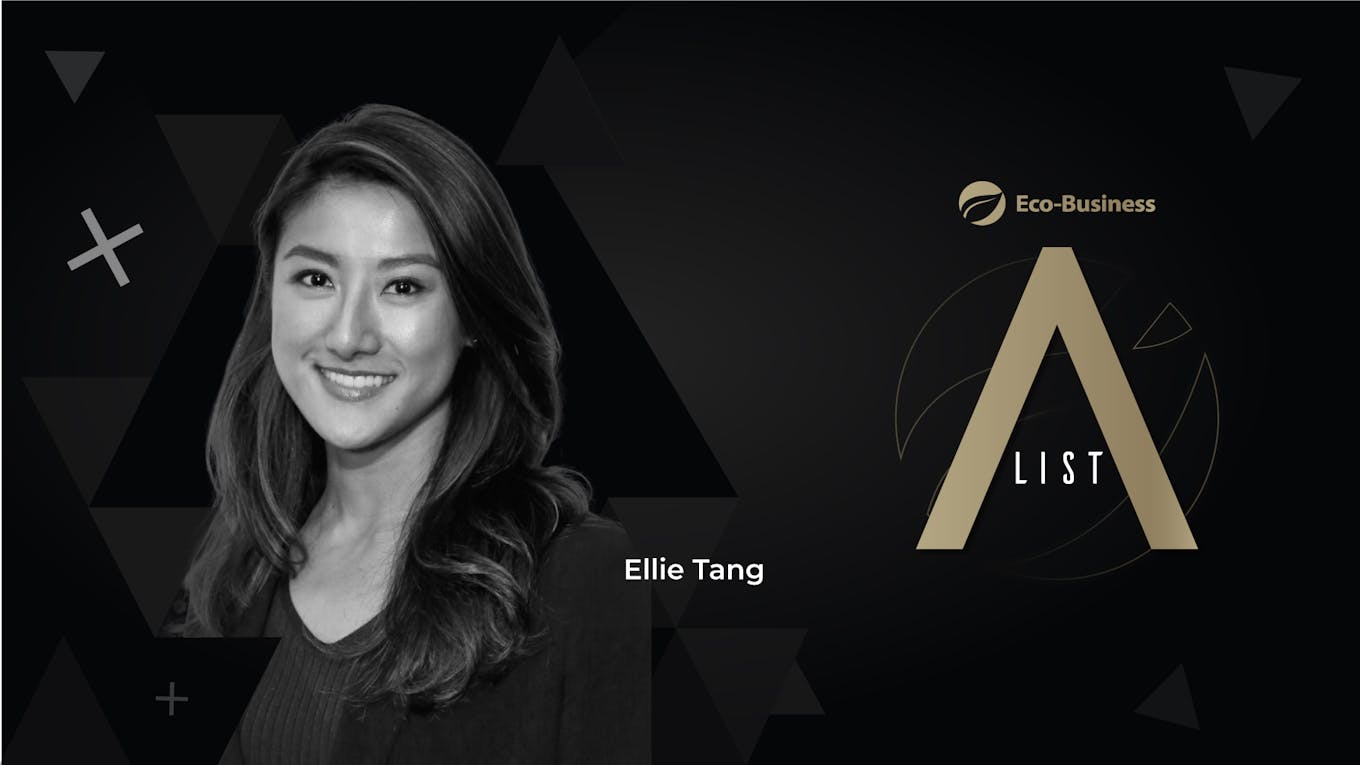
Ellie Tang, head of sustainability, New World Development. Image: Eco-Business
Ellie Tang, head of sustainability, New World Group
Weekends spent with her father in nature planted the seed for Ellie Tang to become a sustainability leader.
As head of sustainability at Hong Kong-based developer New World Group, she is driving the shift towards sustainable buildings in Asia. Tang rolled out the conglomerate’s New World Sustainability Vision 2030, pushing for green building designs, environmental protection, resource efficiency and the adoption of clean energy.
She spearheaded Hong Kong’s first green loan last year, raising HK$3.6 billion (US$460 million) for a redevelopment project pre-certified to various international green and healthy building standards.
In her other role as sustainability manager at Hong Kong-based brand operator K11, Tang recently established the Nature Discovery Park at K11 Musea, Hong Kong’s first urban biodiversity museum and sustainability-themed education park, to raise awareness on more sustainable ways of living.
This year, she decided to take her commitment beyond her corporate roles and founded Impact Kommons, a start-up accelerator focused on the SDGs. It seeks to support new businesses to drive impact, innovation and their bottom line and close the sustainability awareness gap in Hong Kong’s start-up space.
Tang has said she feels accomplished when she manages to convert naysayers and get them to consider sustainability risks and opportunities in their own roles.
The Eco-Business A List 2020 will be open for nomination next year - stay tuned.
Additional reporting by Zafirah Zein and Tim Daubach. Design by Philip Amiote.








